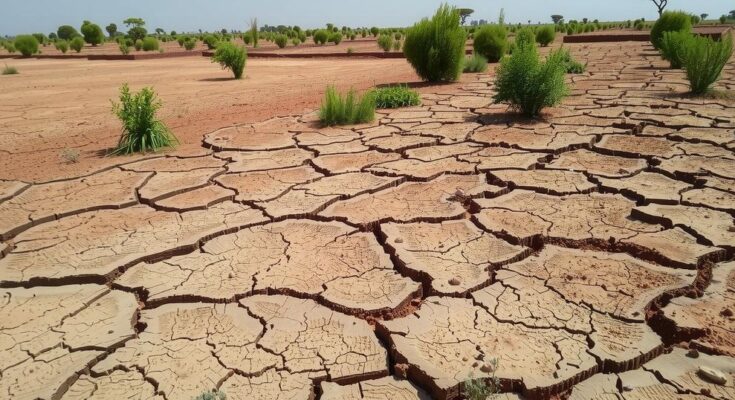Kenya is facing its worst drought in 40 years, leading to severe food and water shortages impacting millions. The United Nations reports alarming conditions, with communities lacking access to safe water, forcing vulnerable populations to travel long distances for contaminated sources. During COP29, Kenya emphasized the urgent need for financial support from developed nations to combat these crises, resulting in the “Baku Climate Unity Pact” aimed at bolstering adaptation measures.
Drought conditions in Kenya have escalated to unprecedented levels, impacting millions through severe water and food shortages. This situation, which once adhered to predictable seasonal patterns, is now characterized by increasing frequency and intensity. The inhabitants of arid and semi-arid regions find their agricultural and livestock-dependent livelihoods threatened as climate change exacerbates living conditions. The United Nations has reported that Kenya is currently facing its most severe water crisis in four decades, with many communities lacking consistent access to safe water. In northern Kenya, women and children are compelled to travel greater distances daily in search of contaminated water, increasing their risk of illness and infection.
At the recent 2024 United Nations Climate Change Conference (COP29) in Baku, Azerbaijan, Kenya called for enhanced financial assistance from developed nations to facilitate adaptation measures during this critical time. One of the outcomes from this conference was the “Baku Climate Unity Pact,” outlining collective financial targets aimed at supporting vulnerable countries and providing a roadmap for global climate adaptation. This agreement seeks to bolster the resilience of nations heavily impacted by climate change, particularly those with minimal industrialization and greenhouse gas emissions.
While the results of COP29 illustrate a robust international commitment to assist at-risk nations, the pressing challenge remains in converting these commitments into tangible actions that effectively address the repercussions of drought and climate change in Kenya and beyond.
The ongoing drought in Kenya is a significant humanitarian crisis, primarily affecting arid and semi-arid regions where communities rely heavily on agriculture and livestock for their livelihoods. This drought marks the worst water crisis Kenya has encountered in forty years, highlighting the urgent need for comprehensive interventions. The frequency of such climate-related disasters has increased, necessitating a coordinated global response to enhance resilience and provide critical resources to affected populations. Recent international conferences, such as COP29, underscore the importance of financial support and collaborative frameworks aimed at mitigating climate change impacts on vulnerable nations.
In conclusion, the drought in Kenya represents a dire challenge, with millions suffering from a significant lack of water and food resources. Efforts at international levels, particularly through initiatives like the “Baku Climate Unity Pact,” illustrate the recognition of the need for collective action to aid vulnerable countries. However, the critical task ahead is to ensure that these promises translate into effective strategies and initiatives that foster resilience and support communities in confronting the adverse effects of climate change and drought.
Original Source: www.aljazeera.com




